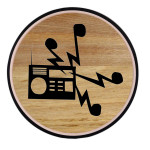The Rule of 2 – How Many Words You Should Know (For Every Language Level)

The Rule of 2 – How Many Words You Should Know for Every Language Level
But first things first. If you have no idea what a language level is, refer to the Common European Framework of Reference for Language Learning.
Now back to the rule! It is as simple it gets — the number of words needed to advance to every level doubles.
How Many Words You Should Know (for Every Language Level)
| Language Level | Number of Base Words Needed |
| A1 | 500 |
| A2 | 1000 |
| B1 | 2000 |
| B2 | 4000 |
| C1 | 8000 |
| C2 | 16000 |
Add or deduct up to 20% of the given values. This way, you will get the approximate range for each language level.
What Is a Word?
It needs some clarification since this term has changed its meaning in Linguistics in the last few decades. In the past, “a base word” was the base word itself and all its inflected forms. For example, “tough,” “toughen,” and “toughness” used to be treated as 3 words.
Nowadays, “a base word” indicates “the word family” and consists of the base word and its inflected forms and derivations.
According to a renowned linguistic researcher Paul Nation, if you use the 1.6 factor to base words, you should get (more or less) the number of “separate” words (i.e., inflected words).
“Why Do I Need to Know How Many Words You Should Know for Every Language Level?”
A fair question, I guess. It’s not a fun fact which you can rub in somebody’s face. There are two good reasons:
Vocabulary size is a good indicator of your current level
The number of words you know is one of the most reliable indicators of your language level. If you track the size of your vocabulary, you should be able to tell (more or less) what level you’re on. Assuming, of course, that you learn the right words. Memorizing the names of plants won’t get you far!
Vocabulary size can be your milestone
Not knowing where you are heading can be frightening. It’s like straying in the fog. You don’t know what lies around the corner. Knowing your goal can give you a sense of direction. Even if you fall, it will be on a pile of cushions, not the sharp rocks.
How Many Words You Should Know for Every Language Level – Milestones

Photo by: John Spooner
There are 4 most important vocabulary milestones in language learning. They are a great way to establish what your current language level is and how big a distance you have to cover to get to the next one.
Just in case you wonder – the following rules stand roughly true for most of the languages. Be it Asian or European. But since languages tend to differ from each other quite a bit, please take it with a grain of salt and use these calculations only as a landmark.
1000 words
1000 words allow you to understand about 80% of the language which surrounds you, as long as it is not too specialized (Hwang, 1989; Hirsh and Nation, 1992; Sutarsyah, Nation and Kennedy, 1994)
In theory, it sounds great. JUST 1000 words, and you understand that much! Unfortunately, the remaining 20% is what really matters. Just look at this sentence:
“I went to the … to buy …. but they told me that they couldn’t… .’ Sure, you understand a lot of words. But does it help?
3000 words
3000 words allow you to understand about 95% of most ordinary texts (Hazenberg and Hulstijn, 1996).
It seems like a lot. Sure, on this level, you will be able to hold a decent conversation. You will also be able to get the general ideas and concepts of most of the articles.
BUT…general comprehension is not the same as full comprehension, as it involves some guessing.
Still, there is no shortage of enthusiasts who claim that such level is high enough to start picking up new words from context. However, researchers tend to disagree and say that the “magical” number of words which allows learning from the context is….(drum roll)
5000 words
5000 words allow you to understand about 98% of most ordinary texts (Nation (1990) and Laufer (1997)). Such a vocabulary size also warrants accurate contextual guessing (Coady et al., 1993; Hirsh & Nation, 1992; Laufer, 1997).
It means that you can function surrounded by this language without bigger problems. Sure, you will struggle if you want to formulate your thoughts precisely, or when you encounter specialized vocabulary.
But other than that, you will be fine.
10000 words
10000 words allow you to understand about 99% of most texts (Nation (1990) and Laufer (1997)). It is the pinnacle of language learning — a counterpart to having the vocabulary of a college graduate.
With that many words, you can express yourself with fantastic precision and pass for a native speaker if your accent is good enough. It is the minimum goal for every language I learn. It makes me feel like a citizen of a given country.
If you want to download frequency lists for your target language, visit this website.
How Many Words You Should Know for Every Language Level – Summary
Knowing how many words you need to know to get to the C1 level gives you some perspective on how much effort it takes to achieve this monstrous goal.
I’m writing this because many of us get depressed after seeing dozens of videos on YT of people speaking or claiming to speak 10 or 20 languages.
But the truth is that there is a yawning gap between being good and being great at a language (or anything else for that matter).
Any person who has truly mastered a language (i.e., achieved C1/ C2 level) could have learnt 2-4 languages to B2 level or 4-8 languages to A2 level in that time
Remember it the next time gloomy thoughts start creeping up on you, my friend.
Done reading? Time to learn!
Reading articles online is a great way to expand your knowledge. However, the sad thing is that after barely 1 day, we tend to forget most of the things we have read.
I am on the mission to change it. I have created about 30 flashcards that you can download to truly learn information from this article. It’s enough to download ANKI, and you’re good to go.










Dear Bartosz. Thank you for your informative and encouraging article. I have been coming back to this content for inspiration for two years now, and it has given me great direction for my own language learning in Arabic and Chinese which I had been stuck with for a long time. I am now at over 2500 words in both on my homemade anki decks and hoping to make it to 3000 over the coming year. Do you have any tips for learning vocabulary and places to find the truly high frequency words?
Yeah, the Ling Q test is not reliable at all for assessing your true vocabulary level. I took the Spanish test twice in a row: the first time it said I knew 1700 words, and the second time it said I knew 13,200 words!
Because it only throws about 5-6 questions at you per level, you’re really at the whim of whether the random words it tosses your way happen to be the same words you know. Also, most of the test relies on visual recognition memory and sentence patterning, so with a basic knowledge of verb conjugation and a healthy repertoire of Latin roots, you can guess your way up pretty high. I can pass a 2nd-semester college Spanish clep exam okay, but I don’t imagine I know more than 2-3,000 Spanish words really.
Hi Bartosz! Looks like this article is a gift that keeps on giving! I just hit 1000 words in Spanish and can already tell the difference it makes versus my previous “tourist” level. Anyway, you mentioned some anki resources for some languages, is there one you like for Spanish? There are so many that it would be great to know what an expert like you found to be most effective. Thanks!
Hi Paul! I am glad to hear it and my congratulations! 🙂 This is the deck I really like: https://ankiweb.net/shared/info/908288272 . YOu’re welcome!
Hi Bartosz,
That is a really interesting article. Many thanks for that.
I just got confused with some of the calculation. How would you suggest to handle for example if I get a score of let’s say 70% of a text? How many words would that mean more or less?
I guess it would be something like: for this lower percentage case we could consider 3,500 words as 100%, therefore 70% means a vocabulary knowledge of 2,450 words? Or how would you handle that?
Thank you in advance,
Rodrigo
Even coming from studies, all this information should be called approximations, so you don’t get any wrong idea. They are not sharply precise.
We wouldn’t handle it the way you suggest—the number of words you need to know increases somehow exponentially with every 1%. If knowing 95% of words guarantees knowledge of 3000 words and 98% of 5000, it doesn’t mean that knowing 96,5% would give you knowledge of 4000 words. This would mean that the progress is linear, which it’s not. We would assume that about 3400 words give you knowledge of 96% of words, and then the remaining 2%, i.e. 1600 helps you arrive at 5000 words. It’s a simplification, but I hope you’ll understand now what I mean.
For example, Webb and Nation (2017) estimated that knowing 2000 words represent 86,95 – 91,71% of the words that appear in different types of discourse.
I am a linguist myself and speak several languages. I am astounded by the claims people make here which seem outlandish and unreal. For starters (let me work backwards) there is no way in HELL anyone is going to pass a serious “C2” level test with 10,000 words. “C2” is serioussss, to say the least. My French is flawless and I’d be scared to test it if I were aiming for a C2. As a native speaker or English I’d get drilled if I were to take a “C2” because your answers must be perfect and your knowledge of the culture must be flawless. In English I may get asked about the Reinassance, Chaucer or to explain what a Black Hole is. Anything from agriculture to zoology can be thrown in. As for the lower levels, even a B1 should have 3,000-4000 words of English in order to get by. By the time you are at a B2, you need to know a good 10,000 words which still makes your language knowledge shaky because any highschooler in the USA will know 15,000-20,000 words. So all this mumbo-jumbo I hear here is insane. Please be careful with wild claims which are unfounded.
I, on the other hand, am baffled by such comments. Not only do I provide sources for my claims, but it also takes 2-3 minutes of a basic Google search to find lots of sources that can further be used to verify them.
Don’t get me wrong, but your opinion is not more valid than the studies. If you have any research papers that contradict the ones I quote, please do post them. I am also willing to change my stance on anything, but until I see a good deal of research papers that are better than the ones I have already seen, I will stand by my current views. I am also eager to hear any potential flaws in the studies I have already cited.
Hi,
I’m studying for the Goethe exam B2.
So, based on your (very inspiring) article…5000 is the number of words that I need to learn (among other things) to get a high score on the exam?
Kind regards,
Max
Yes, this number of words would almost guarantee a high score.
Hey, Bartosz!
Great article, thanks!
I can understand English very well when I am talking to someone, but I tried to watch a movie in English and in the first 5 minutes I gave up because I only understood the context, not the whole sentence, as you said in the article. Could you suggest a frequency list for me to base my studies on focusing on English for films? And how many words do you think is great for this goal?
My pleasure! I can’t recommend anything. I am afraid you will have to google it! 🙂 It’s difficult to precise answer your question in a comment. Keep in mind that it is not only about the number of words you know but also about specific accents or dialects you might hear in movies! Either way, most of the time, about 10k words should do the trick and should allow you to understand most of the things you hear in movies and TV series 🙂
Hello Bartosz,
Tks for the reply!
I decided to recap some vocab, with “In Use” basic, intermediate and advanced vocabulary books, and after that venture into the OPENSUB 50k frequency list. Let’s see what happens!
Hey, Iago,
My quite long experience with learning English from a pretty high, useful level up to fluency (when I moved to the UK) showed one extremely useful trick to learn more vocabulary while watching movies. I discovered it just by chance, watching my elderly friend watch TV with subtitles. I suddenly discovered that I am able to understand practically everything. I have been using this method to learn vocabulary and get familiar with new words ever since. I simply watch a movie – or even better, a TV series! – with subtitles. The only thing to watch for is to make sure the movie/TV series you picked up is in the correct version of the language you want to practice. That may sometimes cause problems – for example between British and American English or in the case of Spanish which varies a lot between Europe and South America.
Now I use the same method to familiarise myself with a new language – the options provided by Netflix are wonderful here. I watch currently an American tv series with Hebrew subtitles to get used to reading Hebrew without nikkud (marking vowels in simplified Hebrew script which are normally not used at all in written Hebrew text)
Based on the material covered in language textbooks and graded readers, the actual number of words per CEFR level looks more like this:
A1: 1,000 words
A2: 2,000 words
B1: 3,000 words
B2: 5,000 words
C1: 8,000 words
C2: 10,000 words
Granted, a “true” C2, should know more than 10,000 words, but the current structure of most C2 CEFR tests is unable to assess a significantly larger vocabulary. At the other end of the spectrum, one wouldn’t be able to pass an official A2 test if they only knew 1,000 words.
Thank you for your comment Michael, but it seems you haven’t understood this article. Let me explain step by step.
(1) These are RANGES of vocabulary, not PRECISE NUMBERS. And if you look at your numbers, and the ones I give, they overlap almost perfectly. These ranges also include passive vocabulary.
(2) At the other end of the spectrum, one wouldn’t be able to pass an official A2 test if they only knew 1,000 words.
Agree to disagree. Although it still beats me why certification at this level even exists as it can’t be used as a basis for almost anything.
(3) The CEFR numbers you quote DON’T INCLUDE passive vocabulary, so the actual numbers are larger.
(4) You quote numbers for English – the language that is very big lexically. Way bigger than most other languages, in fact. I have created a very good APPROXIMATION for most popular languages, including English, and it works very well, but it’s not 100% precise. That’s a compass to know where you’re currently at, not the state-of-the-art GPS.
I hope that helps!
Bartosz
Hello Bartosz,
I appreciate your quick reply.
1) The B2 and C1 levels do indeed overlap. The B1 level is off by a margin of 50%, while the A1/A2 levels and most importantly the C2 level, are completely off.
2) Trust me, I have a lot of experience with official CEFR examinations. I passed the KET (A2) Cambridge exam at the age of 12, the PET (B1) at the age of 13, the FCE (B2) at the age of 14, skipped the CAE (C1) and passed the CPE (C2) a few days before my 16th birthday. Skipping the C1 level exam is commonplace in my country, as most language teachers have noticed that with a handful extra months of study, students can easily pass the C2 level. I am also currently self-studying Spanish and get a similar picture from the material available.
I agree that the A1/A2 levels are of little to no use for adults, but are great milestones for kids and decent milestones for young teens.
I insist that you check graded material such as simplified novels, either in English or better yet in a language you are currently at a pre-intermediate level.
According to Eli graded readers (they have free samples on their website) their novels have:
600 unique words per A1 novel
800 unique words per A2 novel
1000 unique words per B1 novel
1800 unique words per B2 novel
2500 unique words per C1 novel
Though I will concede that the talent of the writers who adapt the novels with as few words as possible probably plays a role.
3) The numbers I gave are for passive vocabulary. If you are unable to give a loose definition of a word, then that word should be considered as “extra-passive” vocabulary. Vocabulary that you are aware of, yet are not able to understand at all what it means out of context can’t be considered passive. Even in my native language, there are words that I have heard of, yet I have no clue what they mean, nor do I care to find out to be honest.
4) A huge chunk of those words are either highly specialized words like legal terms, redundant synonyms, obscure loanwords or words that have completely fallen out of use. Then there also are the obvious portmanteau words that shouldn’t be considered separate lemmas in the first place.
Anyway, my main point was that the current CEFR exam structure can’t assess a vocabulary over 10,000 words. It’s impossible unless literature becomes a key part of the C2 exam. If that ever happens, I could see the 16,000 word figure having merit.
My pleasure! 🙂 I will only refer to the moot points here 🙂
(1) They don’t overlap based on one set of statistics that you have quoted. Even in my articles, not to mention in the literature, you will plenty of statistics that confirm my approximations. It’s hard to justify giving more credence to one source over the average of many others. That’s definitely my problem with your argument.
(2) I am not sure what you mean. You have a very precise definition of the word in my article. That’s a base word, i.e. a word family.
(3) I might be wrong, but in my ANKI database, I have the CEFR numbers you have quoted, and they do not include passive vocabulary.
(4) “They shouldn’t be considered separate lemmas in the first place.”
Why? If they are not considered separate lemmas, then how are they classified linguistically?
(5) Anyway, my main point was that the current CEFR exam structure can’t assess a vocabulary over 10,000 words.
We have no argument here. The higher we go, the more difficult it is to assess the size of vocabulary precisely. But once again, my estimates are an approximation for a variety of languages and a general compass. They are obviously not incredibly precise, just so we are clear.
Anyway, you brought up very good points, Michael! Thank you 🙂
I have to add some feedback. And please don’t consider me to be impolite, I have to state that the numbers of vocabulary on this website are nonsense. C2 = 16K words? The average active vocabulary of a native speaker consists of approximately 5.000 words, while the passive vocabulary can be considered as ca. 100k or so. The english language is estimated to encompass a total of ca. 300K words. However, the C2 level is defined as a level of language mastery, where you are still below the skills of a native speaker. So with an average vocabuary of ca. 5.000 words a native speaker got (active vocabulary) the statement that you should have 16.000 words in your portfolio for a C2 level, is absolutely nonsense.
That’s ok, that’s a place for the discussion and the exchange of opinions. First of all, you can find all the references for what I have said above. You don’t seem to provide any meaningful evidence. If you want to have a meaningful discussion, provide sources of at least similar quality instead of opinions. Secondly, I think you haven’t understood the article, which makes this entire discussion a bit weird. These are WORD FAMILIES, not individual words. WORD FAMILIES, depending on a language, can envelop between a couple to +20 words. That makes quite a difference contrasted to what you have claimed, I have written, right?:) Either way, even without sources, you’re saying almost the same thing as I do. Thank you for your comment!
Hey Bartosz! I’m learning French from scratch, even though I have made some great progress. My two native languages are English and Greek. How long will it take me to become a B2? Currently, I am a high A2. I know about 1700 words, but I can’t really speak like a French native.
Hi! If you are only at an A2 level then there is a long way ahead of you to speak like a native speaker. I can’t tell you how long it will take. It depends on your available time, current learning ability, strategies you’re using etc. It’s not black and white! 🙂
Hi, I was analyzing and reflecting that the most essential part of a sentence is the verb😅, but for example, how many verbs does a native person know? And how many verbs for each level? I’ve been researching but haven’t found this data, in general I will try to do it using vocabulary bases by levels in English and Russian to capture the verbs and get a sense.
I am sorry but I can’t help you with this question! I have no idea 🙂 !
The idea sounded cool so I did some tests for languages I studied. Here is what I found:
When I tried a German test, the result was 21 500 words at wortschatz.tk, 12 000 words at LingQ test. I think I have good reading and listening comprehension, however, I feel quite unsecure in my grammar and the words do not come as fluently as I would like.
With Russian, I got assessed as 21 976 words at one site, or 35 550 words at LingQ. The grammar command is even worse for Russian, I would put myself around A2:D. I suspect the numbers come from similarity of Russian and Slovak + Czech which I command to a native degree. I suspect if I tried a Polish test, I would get some thousands of words right with some guesswork, but I did not study Polish ever, apart from watching 1 series and attending a mass in Polish a few times. Also, my rading would be much better than listening.
LingQ Spanish test put me as 6700 words. But I have not used Spanish much and I could not probably hold a decent conversation.
For Japanese, I am supposed to know about a 1000 words which seems legitimate. I focused on Japanese for the last year or so, conversing with a neighbor weekly until she had no time for that any more.
I am afraid for me these numbers do not mean so much for most of the languages. I feel I struggle much more with correct grammar than with learning vocabulary except for Japanese.
Cool! Thank you for sharing your results! 🙂 The problem with many of those websites is that most of the time they don’t treat count a word family as one word, so interpreting your results gets tricky 🙂 We would have to divide by an appropriate multiplier to arrive at the more precise number. Another problem, as you have already noticed, that the bigger your language background, the more you can skew those results with your passive vocabulary. In other words, the more experienced you are language-wise, the less reliable those tests are! 🙂
I suppose knowing the names of plants or animals might not be that useful at the lower levels, but a fluent speaker is expected to know a lot of them. You’d expect a fluent English speaker to know oak, aspen, nettle, ragweed, cottonmouth, blue whale, chickadee, crow, and magpie for instance, though it might vary from country to country. Perhaps the frequency list might become less important as you rise in level?
No argument here. It’s certainly expected that native speakers know these names. However, it would still be arguable whether they are useful for more than a handful of people. You’re absolutely right. The more words you know, the less useful frequency lists become. I would say that probably at about max. C1 level they lose their magical powers.
Hi 🙂
Do you know any ANKI deck to learn English for a total beginner and for someone who has an “intermediate” level?
Thank you
Hi! 🙂 This is the one I like a lot: https://ankiweb.net/shared/info/1104981491
Hey Bartosz,
I have been learning Czech part time – alongside medicine – for a year and a half and my vocabulary has reached about 1000 words (from class and textbook). I want to be able to reach fluency or somewhere close to fluency as I will eventually have to speak with patients and Czech is not my native language. Do you know where I could find ACCURATE word lists – I have tried the wikipedia frequency lists but I am unable to filter out which words would be correct or incorrect to learn. If you have any advice on how I could fast track my progress I would be grateful.
Great article, by the way!
This is the only half-decent ANKI deck that is currently available: https://ankiweb.net/shared/info/849929019 . My suggestion would be to ditch the idea of using frequency lists for this language as the foundation of your learning. Buy yourself a good pocket dictionary – this way you will be immediately sure what a given word means. Then you can compare words from https://en.wiktionary.org/wiki/Wiktionary:Frequency_lists/Czech_wordlist with dictionary entries.
Hi Bartosz,
Is it possible to learn Spanish to C1 level in a year from scratch??? If so, what would the schedule look like??? You caught my attention since I came across the article about a guy, whom you coached, got a B2 in German in only 5 months. Thank you.
Hi!
Sure it is. Even more so if somebody already has some background knowledge regarding other similar languages. The plan would almost identical to the one above. The only thing that would change is concentrating more on reading from B2/C1 at the cost of listening (once it was improved enough).
If you’re the kind of person that has taught English for years, then in your opinion EVERYTHING is nonsense. (If you reply, I’m sure you’ll prove me correct)
Hi Bartosz,
Thank you so much for taking the time to put together such a comprehensive and motivating/motivational blog. I’m a native English speaker who has studied German (C1) and Spanish (B2/C1) but I feel I’m losing my fluency as I’m back living in an English speaking country. I was feeling despondent about this but this article has put a spring back in my step and has encouraged me to take the proactive approach of looking up the vocabulary lists! Very much appreciated! Thanks again, Bartosz! 😉
So glad I could help! Thank you very much for your comment and kind words, Christine!
Hi Bartosz,
thanks for the informative article!
Just to clarify, do your vocabulary size estimates refer to passive or active vocabulary knowledge?
Thanks!
Hi Georg! Thank you! They refer to the overall size of vocabulary, i.e., they include both passive and active vocabulary. That’s why it’s easier, for example, to start learning languages passively if you learn those which are similar to the ones you know.
Hi, great article! Where can i find a reliable reference to quote the Rule of 2? Thanks!
Hi! If you want to quote it, simply link to this article on your website. That’s it 🙂 Thank you!
Thanks for the advice!
I was actually talking about nouns/adjectives declensions rather than the verbs, but I guess those are similar in Polish too.
If you want some inspiration for your next article, I’d love to read on how you got from C1 to C2 in english. I know you did legal translations, but I’m sure it doesn’t only come down to that.
I am kind of hitting the diminishing marginal return of the learning curve in English and while reading a lot helped me to get to C1, it doesn’t seem to lead me to C2 (or maybe it does but very very slowly).
I saw that this question is quite common but it seems no one covers that part of language learning with an effective method. Would love to hear your take on that.
Yes, those are similar as well 🙂 That’s a brilliant idea. I will definitely write something about it! Although my take on the matter will probably strike others as strange! 🙂 Anyway, will do! 🙂
Hi Bartosz,
Reading your articles is always a good way for me to start the day. They’re really motivating and yet not deluding.
I got a specific question for you, as you’ve learnt Russian.
I recently moved to Moscow and have learnt about a 1000 Russian words so far but have very little confidence in using them as they change according to the sentence (cases). What was your technique to power through it ?
Hi! Thank you for your comment and encouraging words! First of all, my take on that matter wouldn’t help you much. Russian is very similar to Polish so I never struggled with that problem. However, what I tell my English-speaking students is this – don’t try to learn all the conjugations at once. You should be more or less aware of how they sound so you can understand them. But don’t try to activate them. Instead, only try activating conjugations for “I” and “you”. If that’s too much for you then just stick to “I”. Once you get over this hurdle, try memorizing other forms. Also keep in mind that you can even use infinitives at the very beginning and you will be understood perfectly. The most important part is that you activate your words well so you don’t hesitate when you speak. Good luck, Pandora!:)
Reached A2 level in German – so that’s 1000 words. Looking forward to hitting 8000+ at C1.
Cool! Congratulations and keep up the good job 🙂
Hi, I saw the references for the 3000, 5000 and 10000 words but didn’t see that for the 1000. Could you send me, please?
By the way, does your calculations on the number of words for each CEFRL level is a correspondance between what authors say about beginner, intermediate and advanced speakers and the definitions of A1, A2, B1, etc?
Do you know if those numbers are quite fixed or they vary in fonction of cultural aspects? For example, I’ve already seen that for getting 90% of french texts, it is necessary 600 words, while in English or Dutch that number is far higher.
Nice article, by the way !
Hi, I don’k now why I missed it before. Here are references: Hwang, 1989; Hirsh and Nation, 1992; Sutarsyah, Nation and Kennedy, 1994).
Yes, this is an approximate average of the number quoted in the linguistic literature. They definitely vary in some way. However, I don’t think it’s a problem. Treat these numbers as a general guideline in your learning and you should be fine 🙂
Sorry Bartosz Czekala, i wanted to reply “Raymond John Edwards”. disconsider my last comment it was not for you, it was for Raymond.
can you delete my last comment? and we can pretend it was not happen.
:3
I am aware of this. I was referring to your comment about Raymond 😀
https://en.wiktionary.org/wiki/Wiktionary:Frequency_lists
Check by yourself, see how many words do you really know in these lists
i am a portuguese native speaker, 3 years ago i did a exam to define how many words i knew in portuguese,
Results: 30k AND i was in the 1% top,
by the way, there are 300k words in portuguese.
So i was in the 1% top of portuguese speaker population with only 10% of all vocabulary, hummmm, interesting…..
so.. how many words a median person has? how many words a average person has? 20k is a good number, i think it is a good metric to aim
you said “I have taught English for many years and in my opinion this is nonsense.”, sorry for saying that BUT you are hilarious, and i’ve taught mathematics (for children) for years, do you think i know mathematics like calculus 2 ? i don’t even know what calculus 2 is.
what kind of teatcher are you?
Damn, that’s a harsh reply. As harsh as it’s true! Thank you for your comment, Danilo!:)
Hello, could you please send us the resources (https://www.universeofmemory.com/how-many-words-you-should-know/) – I would like to read the whole articles but I cannot find the names of the articles: Nation (1990), Laufer (1997), etc.
Thank you for your question. Please try Google Scholar, It will take too much time to find it for you since I don’t have it handy.
Thanks a lot, Bartosz! As soon as I am done I’ll add a reference to your article.
HI Bartosz! Thank you for the splendid article. Too bad I didn’t come across it when I worked on my project dedicated to measuring the English vocabulary. It could have been a great help back then. Will you allow to use some of your ideas for improving it? If you happen to find my website interesting and appropriate for your users, I’ll be grateful for a link here (or somewhere else on your site). The address is in my by-line.
Hi! Thank you! No problem, go ahead and use it. The reference is always appreciated though 🙂
I will put your link here for anyone interested: http://www.manylex.com 🙂
Hi Bartosz,
First of all, I love your blog!
As you have managed to learn so many languages I would like to ask you one question which bothers me a lot. Currently I’m trying to improve my intermediate Spanish but I’ve also started learning another language from scratch. Apart from that I’m continuously trying to improve my English 🙂 What in your opinion would be a better strategy – learn/improve 3 languages simultaneously or focus on one language till I gain a certain level? Which strategy is more effective?
Thanks in advance for your advise 🙂
Hi Natalia!
Thank you very much for your comment! 🙂
Answering this question is actually quite difficult as it requires more details.
However, the general rule is very simple – most of the time almost anyone will make quicker progress by sticking to just one language.
And the best time for another language is at about C1 level (or B2 if you are not interested in learning a language to an advanced level).
Hope that helps! Feel free to write to me with more details so I can give you a more precise answer! 🙂
Zastanawiam się, czy tu “wolno” pisać po polsku? 😉 OK ok, for other users reading… – how many languages do you know with 10k words if I may ask? How long did it take you? I have just started learning Spanish, today, as of 3.30 pm. I “need” it to… teach it to my kids. They are homeschooled and we are not awfully rich to pay for so many courses. I know English well enough, and German, Italian and French just a little I guess, but I “forgot” them sort of. Stopped using them. So I decided to learn something new this time, and that’s how I got here, to this site. And it’s inspiring I must say, and quite interesting. Keep up the good work!
Wszystko wolno! 🙂
6 out of 8. Somewhere next year I will achieve this goal for remaining 2 (SPanish, French).
It depends on a language. The quickest I have heard a 10k mark was for Swedish, Took less than a year,=.
Hope you succeed! 🙂 Drop me a message if you need some help 🙂
Neatly done, mate! I have been dreaming of inventing a machine that would be able to “measure”/count/?/ our vocabular capacity. Something like a speedometer, thermometer, etc .. Maybe one day in future?:) Keep rocking, bud
It would be so cool! I guess that for now we just have to wait 🙂
Thanks for your comment!
HI! I´m wondering where did you get the info from? I mean, the number of words for each level.
Basically, it’s the mix of my own calculations which are based on CEFRL.
CEFRL specifies in a quite detailed way, what is the expected level of comprehension on each of the levels.
I cross-referenced this info with the expected level of understanding for each of the aforementioned milestones.
I also used some papers to back-up my data. So yeah, that’s pretty much it ? Hope that helped!
I knew one guy (during my studies) who had many exercise books full of english words. It was his method to improve the vocabulary size. His name is Bartosz Czekała, I’m so proud of you 😉 On the other hand, I work on my vocabulary size now and started writing new words into.. exercise book. Test showed the knowledge of 7,1k words, so much more work to do. Have a nice day 🙂
Well, my methods back then were pretty ineffective! 🙂 IT’s a great result! You are definitely on your way to achieve full fluency!
Thank you for your comment Pawel! 🙂
I happy to read your article and I see it’s very important, thank you.
You’re welcome! 🙂
Hello Bartosz.
i’ve learned at high cost that it is this simple: if you try to read interviews with models or soccer-players and it seems toooo foreigner Gotta dedicate good time to learn more words.
Even germans say gernan is a straight-forward language. Nein! JorgeLuisBorges in Ode to German Language mentions german dictionaries that never get it right. They don’t help much.
i may be able to know passive-wise about 5,000 words in german. Man, still far. But as Michael Erard tweeted(google)”Everybody loves a polyglot.” Worth taking the hard road.
Bye Tchau Ciao Adios À bien-tôt (and hopefully eon(en?) schön Tag: Tschús!)
Adalberto
HArd to argue with that! 🙂 Thank you for your commment Adalberto!
Hi Bartosz, I would like to congratulate you for the very interesting article, method and calculations!
I’ve been looking for such a piece of info for quite a few days and many different word combinations on Google were tried out to finally get me here.
Knowing exactly the number of words one should master to get to a milestone like C1 level is of great help for using tools such as Ankidroid, where you have various lists from 1K to 10K to choose from, what makes you a bit confused about whether all of those words in the long lists would be needed, cause else you’d be fine hitting a shorter list and the pursuing a proficiency test.
Now thanks to your article I’ve found out that much work has to be done for me to reach C1 level on German. Keep up the good articles! Thank you!
Hi Rodolfo! I’m beyond happy that you enjoyed it. Thank you for your comment and good luck with your learning! 🙂
I haven’t read any article of this kind before. It’s very interesting and really encourages me to learn more and more. Besides you helped me to choose the right direction in improving my skills. Thanks a lot.
You’re welcome! Let me know about your progress ! 🙂
Could you precise how did come up with the specific number of words for each language level from CEFRL ? It is nowhere to be found in the wikipedia article. Thanks.
Basically, it’s the mix of my own calculations which are based on CEFRL.
CEFRL specifies in a quite detailed way, what is the expected level of comprehension on each of the levels.
I cross-referenced this info with the expected level of understanding for each of the aforementioned milestones.
I also used some papers to back-up my data. So yeah, that’s pretty much it 🙂 Hope that helped!
Hang on…. English has over one million words, divide by four to approximate the number of base words, that’s 250 thousand. Are you seriously saying that you have mastered a language after learning 4% of these? I have taught English for many years and in my opinion this is nonsense.
Hi Raymond!
The number of words in English vary significantly. Frankly, it depends on the source of information.
Secondly, yes this is what both research and my personal experience says.
I can only assume, by your name, that English is your native tongue and you haven’t really learnt any other language to C1 level.
If you did, you would definitely notice that 10k words are more than enough to function freely within boundaries of basically any language.
I don’t mean to offend you or be snarky in any way, just to be clear.
I guess that the potential misunderstanding might be also a result of different definition of “mastery”.
What is yours?
Tank you for your comment Raymond!
Cheers,
Bartosz
I loved this post. Thanks for the great explanantion. I am learning Ukrainian, so there arent any common european framework tests that I could find (for free at least). This give me a SMART goal now. Really appreciate this post.
That’s very kind of you! Thank you!
Have you read this article?: http://www.lingholic.com/how-many-words-do-i-need-to-know/
Could you send some links to the research articles you mentioned? They are a bit tricky to find.
Thank you!
No, I’m afraid I haven’t.
Here are some sources:
– “If the definition of a word family isbroadly drawn to include a base form and all derivations and inflections then itis estimated that an educated native speaker might know some 17,000 to20,000 words” (D’Anna et al., 1991; Goulden et al., 1990).
– And some more to be found here: http://iteslj.org/Articles/Cervatiuc-VocabularyAcquisition.html
That’s amazing because I was looking for this very information last week and I couldn’t find anything interesting. This article is perfect. I share it. 🙂
I agree that there’s a gap between B2 and C1. I lived in Brazil 7 months to learn Portguese and discover Brazilian culture and I didn’t really study there, which was bad. I think at that time I knew 5000 words. I was frustrated because I didn’t reach the level I wanted and have the hability to speak fluently though I could understand them pretty well and make some grammaticaly correct sentences.
Now, i am in Argentina, I want to learn Spanish and before to read your article I estimated the number of words I needed as more or less 10 000. Know, I have the same level in Spanish that I had in Portuguese, and I know that with little work I can reach a good C1 or C2 in few month, because I am not interested in speaking well, I want to speak like a citizen in every language I know. 🙂
Hello!
I know the pain – I also couldn’t find any good article about this topic! 🙂
Learning 10k words takes some time but it’s time well spent!
Good luck with your mission! I’m sure you will succeed! 🙂
nice article. thanks.
Thank you! 🙂
Hi Bartosz, One of the best, most practical and inspiring articles I’ve read on the topic. Thanks for posting it.
Pleasure is all mine. Thank you for your wonderful comment 🙂
go raibh maith agat.
Tá failte romhat! 🙂
You’ve inspired me to reflect on MY vocabulary size)))
Glad to hear it! 🙂 Let me know if I can help somehow !
My friend,
This is an amazing article you nailed it really! Keep up the great work. Thank you.
Cheers
Hasan
Hello Hasan! I’m happy you enjoyed it and thank you for your kind words! 🙂
Could you please send the reference of the data you presented in the current article?
I am terribly sorry, but I am afraid I cannot. I am a bit too busy to dig up again all the research I did for this article. Please find the main references in the article. You can easily google them within 1 minute.